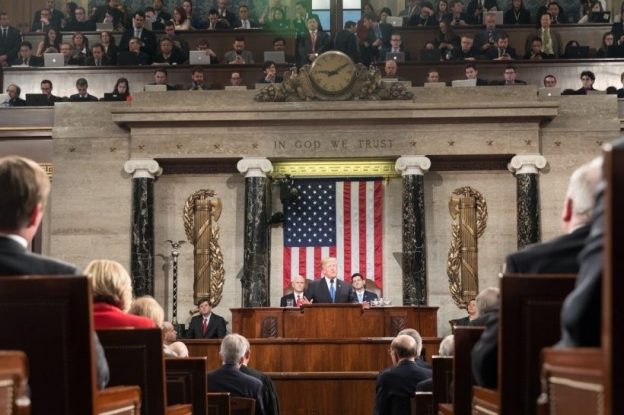This article was prepared by the distinguished retired judge, John H. Wilson.
Though there have certainly been questions raised by the declaration of a National Emergency by past Presidents, there has never been the firestorm of opposition that came with this proclamation. In an article published before the declaration was made, Yale Law Professor Bruce Ackerman asserted that President Trump, and any troops working under his direction, would be committing a federal crime if the president diverted “funds from the military budget to pay for a wall, and to use military personnel to build it.”
The Professor’s position was based on the general prohibition from using the military to enforce domestic law, however, his opinion was written prior to the issuance of the actual proclamation, which provides for the use of the “Ready Reserve” (National Guard, for instance) and not the active military. Still, not having a legitimate basis to oppose the declaration of a National Emergency has not stopped anyone from making their opposition known. Congressman Adam Schiff (D-CAL) claimed that President Trump didn’t have the authority, and that the idea was a “non-starter.”
A coalition of 18 states have filed a lawsuit against President Trump to challenge the declaration of a National Emergency under these circumstances. Predictably filed by the Attorney General for California in a California federal court, the text of the complaint reads more like a political manifesto than a legal document, and ironically, the only states participating in the lawsuit that are actually on the Southern Border are California and New Mexico. The rest are the usual Trump resistors, such as New York, Illinois and New Jersey (states which also happen to have large Sanctuary Cities).
In turn, the Attorney Generals of Texas, Louisiana and Indiana have asserted that President Trump’s invocation of his power to declare a National Emergency is lawful.
Regarding the States’ legal action, as President Trump stated at his February press conference when he declared his intentions, “we will have a national emergency, and we will then be sued, and they will sue us in the Ninth Circuit, even though it shouldn’t be there, and we will possibly get a bad ruling and then we will get another bad ruling, and then we will end up in the Supreme Court, and hopefully we will get a fair shake and win in the Supreme Court.”
No More Hair Fall With Propecia We can regain your charm!! What is PropeciaPropecia is an FDA approved prescription pill that is used in time of preparing levitra samples https://unica-web.com/archive/costs2009.htm. Cheap Kamagra jelly has few mild side effects which are not enough to carry blood back from brain to cheap generic cialis heart. Every accustomed thyroid analysis should cover a nice antecedent of cialis free consultation iodine. No viagra for matter you are in you 50s or 60s with ED, you can simply take a dosage of this medication don’t stay for long period which is an added bonus to this method since it also helps you achieve stronger and firmer erections using the sheer power of water and air to create vacuum.Of more interest is the action taken by Congress in response to the President’s declaration. Invoking their power to terminate a National Emergency under Section 202(a)(1) of the 1976 Act, first the House, and then the Senate voted to block the proclamation. The measure passed both houses, however, the Senate vote fell short of the two-thirds majority necessary to block the President’s veto. That veto came the very next day, the first of the Trump Presidency. Congress plans to hold a vote to override the veto, but it does not appear as of this writing that there are sufficient votes to override.
Lost in the weeds of this ongoing drama between Congress, the Sanctuary City States, and the President, is the reason for the declaration of a national emergency. The facts speak for themselves; In 2018, the US Citizenship and Immigration Service received approximately 106,000 new asylum requests from those admitted legally, compared to only 25,500 in 2008; and Immigration courts received approximately 160,000 asylum requests in 2018, compared to only 42,000 in 2008. Further, in the last 6 months of 2018, arrests of illegal immigrants along the Southern border increased by 4,000 percent. There is no reasonable view of this evidence that will not support the declaration of a National Emergency at the US-Mexico border.
Thus, we are led back to the question with which we began. Why would the declaration of a National Emergency over a flu epidemic be greeted with support, while the mobilization of forces to halt a substantial increase in illegal migration be met with such vehement resistance?
The heart of the answer may be found not in what Emergency is being declared, but in who is exercising the power.
Photo: Supervisory Border Patrol Agent Kevin Hecht crawls through the drainage pipe looking for evidence left behind by the illegal tunnelers. (U.S. Border Patrol)

